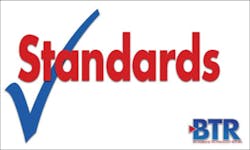SCTE•ISBE has announced the launch of standards work in seven areas under the umbrella of the Explorer initiative. While the new working groups, draft groups, and other activities will operate in the same manner as the organization’s 16 existing working groups, the SCTE•ISBE has launched them with the Explorer designation because their activities will extend beyond the cable industry and therefore will require participation from other fields, according to Chris Bastian, senior vice president and CTIO for SCTE•ISBE.
The initial seven areas covered by the Explorer endeavor include:
- Artificial Intelligence and Machine Learning: The Data Standards Subcommittee Working Group 2 (DSS WG2) will look to create standards and operational practices to enable a common artificial intelligence/machine learning platform to develop products applicable to cable operators. Srilal Weera, principal engineer, Charter Communications, will chair the group. Bastian said the SCTE•ISBE had noticed that several operators had launched development programs in this area that were potentially duplicative. So this effort seeks to prevent cable MSOs from “reinventing the wheel,” Bastian stated.
- Aging in Place: Under the leadership of Group Chair Dr. Sudheer Dharanikota, managing director, Duke Tech Solutions, DSS WG3 will create standards and operational practices to enable a common platform to develop products and services that will help cable operator customers to “age in place” at their residences.
- Telemedicine: DSS WG4 will focus on standards and operational practices to enable a common telemedicine platform to develop products and services, also under the direction of Dr. Dharanikota.
- Smart Cities: The DSS WG1 drafting group (DG) will create a reference library of smart cities solutions as they are applied to the cable industry. The group also will develop industry standards and operational practices for network service providers. Charles Chapman, senior systems engineer, Alpha Technologies, will serve as group chair.
- Autonomous Transport: The DSS WG1 DG will use standards and operational practices creation to define how broadband service providers can provide communications services to what SCTE•ISBE describes as “local autonomous transport machines.” Bastian said that the robots that freight delivery companies such as FedEx have discussed using for package delivery – and that might interact with the broadband network – would be an example of what he called “a sidewalk speed application” that would fall under this category. The group won’t look at the “highway speed” issues normally associated with autonomous vehicles, Bastian said. The group, which is awaiting a chair, also will maintain a reference library of solutions and technologies and will interact with other organizations that work in this area.
- Human Impact on Network Operations: This Network Operations Subcommittee (NOS) working group will focus on operational practices and standards on how people affect network operations – or continue to do so in an environment of increasing network automation, Bastian stated. Areas of activity will include optimized job placement evaluation and training criteria, reducing network degradation or downtime caused by human intervention, automation optimization, performance management techniques for workforces and measurement techniques to quantify the effect of this working group’s output on network uptime. A group chair has not yet been named.
- Extended Spectrum (up to 3.0 GHz): SCTE•ISBE has two major standards initiatives in this area. The 3.0 GHz Task Force will evaluate all IPS Standards to determine how to best update them to match the DOCSIS 4.0 specifications. It is expected some standards will need immediate work and others will be able to wait until their 5-year review. The task force also plans to create standardized text to be used in IPS standards and standardized approaches such as specification tiering or the creation of equipment “classes.” Timothy Cooke, director of technology, Amphenol Broadband Solutions, is the chair of this group. Meanwhile, IPS WG2 DG - 3 GHz Hardline Taps and Passives will create operational practices and standards for 3.0 GHz taps. These standards will address housing and faceplates, mechanical specifications, requirements for electrical performance and an RF bypass mode that maintains AC and RF through the housing when the faceplate is removed. The group, led by Group Chair Nick Segura, advanced engineering principal engineer, Charter Communications, will also consider creating standards for hardline passives.
Those interested in participating in these efforts can find more information on the SCTE•ISBE website.
